Todd Sandler - Entering the Drone Zone - PODCAST TRANSCRIPT
May 28, 2025 at 2:00 p.m.Editor's note: The following is the transcript of a live interview with Todd Sandler with Feazel Roofing. You can read the interview below or listen to the podcast.
Intro: Welcome to the Ask a Roofer podcast, where all your roofing questions find their answers. Your hosts, Megan Ellsworth and Lauren White, peel back the layers of the roofing world to reveal the knowledge, tips and FAQs you've been curious about. From shingles to skylights, metal to asphalt, we are here to demystify the system above your head. So get ready to ask, learn and explore the fascinating world of roofing one question at a time on the Ask a Roofer podcast.
Lauren White: Hello everyone, this is Lauren White with the Ask a Roofer podcast and I am here today with Todd Sandler and we are talking about drones today, which is very exciting. So Todd, I'll just have you introduce yourself and what you do and who you work with.
Todd Sandler: No, no problem. First of all, thank you very much for having me. My name is Todd Sandler. I am the president at Feazel Roofing. Corporate headquarters is here in Columbus, Ohio. We focus on anything from residential homes to large multifamily projects to commercial buildings. We've been in business since 1988, probably the best place I've ever worked. Love the group of people I work with. We're all middle-aged family, love our families, spend a lot of time together. The culture around here is just a lot of fun and it's just the best place I've ever worked.
Todd Sandler: I'm a graduate of Indiana University, Kelley School of Business. I do come from an extensive development background. Out of college I worked for the Toyota Motor Corporation, CB Richard Ellis, Yahoo, DHL. I've done large industrial buildings for PepsiCo, Lego, Lululemon, DHL. So I do have a very extensive background. This really isn't my first rodeo with construction.
Todd Sandler: What I've been focusing on in those previous career paths is all facets of development. Everything from entitlement, design, construction, HVAC, roofing, electric, mechanical, landscaping. So instead of focusing on 15 trades, now I'm down to one. So it certainly has helped me to get a laser focus on and really craft my expertise in terms of roofing, which I love. It was an industry that I never thought I'd go into out of college.
Todd Sandler: My best friend owned a roofing company. He was my neighbor and convinced me to leave DHL and their corporate real estate department to come roof. And I thought to myself, "Why did I go to business school to be a roofer?" It turned out to be the best decision I ever made in my life. I've spent more time with my family, I've had more fun. It's not some stale, stiff corporate environment and I love the people I work with. So I've had to probably kiss a few frogs before I finally knew I hit a prince. But we have a really great culture around here.
Todd Sandler: And you would ask you how has roofing the industry changed in the past 5 to 10 years? And really it's changed in warp speed. Major, major sea change. There's faster estimates, faster assessments, better pictures, new product technology, faster speed to market. Technology has been a really big component because it's made everything more efficient, easier for employees to implement and execute. Our measurements have gone from digital to satellite. You don't necessarily have to go out to the site to get everything that you need. And inspections used to be strictly manual and now we've moved to drones.
Lauren White: Right, yeah. I know that's what we're talking about today is drones. So yeah, they're a big part of that shift. I fell into roofing also and have been with the coffee shops for going on six years now. So just seeing that change in how much momentum drones have had just in my time in roofing is amazing. So can you walk us through the types of drones roofers are using today and what all they're capable of?
Todd Sandler: And I would like to add the drones also add some new excitement to the industry. It's something new, it's something different. We've really used it as an opportunity to set us apart from other roofing companies. In order to have a legitimate drone practice, it takes money, resources, you fail a bunch of times. You succeed a bunch of times. You find out what works the hard way, you find out what doesn't work the hard way, all that. It's so creative. It gets the clients excited. It's sizzle, it's exciting.
Todd Sandler: So how is the drone technology changed? We have went from manually-operated drones to autonomous drones, which means they fly themselves. We like a little of both. I think the autonomous drone takes out a little of the human error, but the manual drone, you can zoom in, zoom out, veer off the path to go and get the specific information you need. The battery lives are longer, the imaging is higher quality, there's better mobility, there's more speed, there's more accuracy. It's easier for the employees to operate and execute.
Todd Sandler: But all in all, the best part is that it improves the client experience, provides more accuracy, it helps you to build trust with the clients. It helps them to make educated decisions. They say pictures are worth 1,000 words. And in the old days I used to tell people I could get on a roof and I could give you my recommendation and you could take my word for it. But if I have a picture to actually show them and to walk them through our process and to show them why I'm recommending what I'm recommending or why I feel the way I do with concrete data, it's a game changer. It makes it easier to educate the clients. It makes it easier for you to build trust with them so they understand exactly why you feel the way you feel and why you're recommending what you do.
Todd Sandler: And then in the end, it provides them with a better foundation to make well-educated decisions because roofing is expensive. It's not like going and getting a cheeseburger or a large fry at McDonald's. Some of these projects are millions of dollars, some of them are $10,000, but depending on your financial situation, things of that nature, it helps to foster that trust factor with the clients so that when you present them with the solution that you feel is right, they have an education, they understand why you feel the way they feel.
Lauren White: Right, totally. And have you noticed maybe that homeowners now with all of the technology available are maybe more educated than they have been previously? Or are they preferring that tech touchpoint with their roofing?
Todd Sandler: So obviously and then I'm not telling anybody on who's listening anything that they don't know, but technology has made everybody smarter. You can go on the internet, you want to know how to make tartar sauce for some fish sticks. You can go online and get a recipe for tartar sauce. I don't know why I used that analogy. So people are more educated, so yes, but when you have all the technology, you still don't want to lose that personal touch. So what I call it is tech and touch.
Todd Sandler: And what we like to do is we like to combine the tech with the personal touch because you go and you don't see people face to face or you're not actually out there yourself reviewing the project so that you can make the proper recommendation, you're not really doing the client a service, you're not building that relationship, you're not building the rapport. And I think you're selling yourself short and you're selling the client short if it's just talking over the phone and sending them a report via email and you're not doing the proper due diligence and you're not taking the opportunity to build the relationship. So I'm all about a nice mix of techs and touch, but the tech certainly makes our business more efficient. It helps us to become more credible based on the data that we're providing.
Lauren White: Yeah. I like that tech and touch. I like that. And I'm sure a lot of homeowners out there like that too.
Todd Sandler: Yeah. And it's part of our moral fabric.
Lauren White: Yeah, that's great. So as we've been talking about roofing inspections a bit, we've touched on the traditional methods of roofing inspections. So what are the benefits? Maybe can we dive in a little bit more to the benefits of using drones for a roof inspection compared to getting on the roof and doing it manually?
Todd Sandler: I just want to touch on what some of the traditional methods are so that I can make the transition for you where these benefits really come in manually climbing on roofs in the middle of the summer, you have 50 buildings you have to inspect. By the 10th roof, you're sweating through all your clothes, it couldn't end fast enough, your inspections tend to be less consistent. And as the day goes on, the quality of your inspections dwindles. People get bored, they start to take more time, it's not as accurate, they're not as consistent, which ultimately provides a less quality product.
Todd Sandler: When you go from having to do 50 buildings by yourself to having a drone that can do it in a third of the time, it really reduces the cost. So what are the benefits to the drones? A, you have higher quality images. Everybody can basically shoot a movie from their phone these days. That's a really big benefit because you want to have these pictures, you want to have that data, you want to be able to provide the customer with those pictures of exactly what we're seeing and why we feel the way we do. So it's all about the educated decision. And I'm going to probably keep touching on that because you really... It's educating them. It's ultimately their decision.
Todd Sandler: So it'll take less time, it's more efficient. I can turn around a report much quicker. I can review the photos online and these high quality resolutions, I can go and review thousands of photos in a matter of moments. Frankly, it's safer for our employees and myself. You have steep pitches, you have high stories, you don't have anybody slipping. If it's a little windy, it's the drone, it's not somebody who has a family of three kids. Some of the roofs that we look at are in really bad condition like rotted OSD, like the shingles are losing all the granules, things of that nature, which makes it really hard to climb. So the drones really do provide that safety mechanism. Anybody listening who cares about roofing and who actually is getting on roofs, this is like a 101.
Todd Sandler: Obviously in my mind, consistency is a big thing because I... We've grown to a size where I can't be everywhere at once and I have to trust my people and I need to make sure that my people can do the same quality of job that I would expect them to do myself. And so the drone technology provides me with that. We can go and do it anywhere, any location. I can get on a plane and go to New Mexico if I want to go and do a drone inspection. And it's also nice to travel with a drone instead of a ladder on the airplane. I don't have to go to get a rental car and then go to Home Depot, buy a ladder, grab it, go. There's just a lot of moving around, a lot of unnecessary stops to make.
Todd Sandler: So that I would put around efficiency. There's less wear and tear on the roofs because we're not walking on them in the middle of August. I'm walking around on a roof, like granules are going to come off. I might accidentally step on a component that I didn't mean to. I might drop a hammer, I might drop a tool of some sort and dent the vent or hit a piece of valley metal. So that takes out that component of it. It's more affordable because I can go, I have a drone, one drone I can... The more flights I do with one drone, technically the cheaper the drone then flights cost me. It's like that economy of scale. It takes less man-hours, it takes less men or women. I have a ton of women that work for me, so I just want to throw that out there. Less people to do the work. What it would take three people three days will take one person a half day without sacrificing some of that quality.
Todd Sandler: But like I said, we always go to the touch component. It's really all about the client experience. It's less costly to produce, produces a better report. The assessment takes less time. It's better data and less human error.
Lauren White: Yeah, for sure. I think that quality assurance is really key too. And you're getting the same quality of a report and a quicker report, especially for the homeowner's perspective. The first and the fiftieth person are going to get the same quality of a report.
Todd Sandler: Yeah and the thing is, our company, our slogan is quality and integrity every time. And I try to live that every day. It's really important to me because you have to also think of our business like McDonald's. Nobody's getting rich off one roof. So we need to make sure that we're building those relationships, that our clients love us, that they're happy with what we do, that we're ultimately providing the best customer experience possible, that they trust us, we trust them. We're not perfect, we will make mistakes, but if you have that trust and they know that we'll come back and fix them, that's part of the relationship. And then when I'm providing them with recommendations and I'm able to show them the data and everything behind that, that builds trust and confidence in me and our company and our relationship.
Lauren White: Right, It's taking that to the next level with the information that they should know about their roof. And I like that.
Todd Sandler: And to give a little background and I don't know if I touched on it for you, but we do residential inspections, but a lot of what I do is large communities. My typical clients are condos, apartments, co-ops, our practice is national. I have a team of licensed drone inspectors throughout the US. So I need to make sure that no matter where the inspection is, no matter who it's for, no matter what the opportunity, we have a consistent and quality product.
Todd Sandler: And as you know, each community is unique. And so it depends on the number of buildings, how many stories, how the buildings are located, is there power lines, trees, is it window? It's a constant follow up. So when we go and we talk about our projects, it's not like a one touch, this isn't a one call close type deal. We have to consistently follow up, touch our client, educate them, they come back with questions. So it's a process of building that relationship.
Todd Sandler: And obviously once it's built, they know we do stand behind what we do, but for the people who don't know us, for the first timers, for all that, it's a opportunity to prove our credibility and for us to show that we really do believe in quality integrity every time.
Lauren White: Yeah. Yeah, definitely. I think that's great. So for a homeowner, someone may be living in a condo, if you were to come out and do a drone inspection, what would that look like? How long does it take? What kind of info does the homeowner get? Touch on that?
Todd Sandler: Yeah, absolutely. So the first thing I do is as you get into some of these larger communities, you have to think about how you're going to present the information to the client first and foremost before you even get out there and drone it. So I like to get a sitemap. I want to make sure that we're identifying all the buildings. So for us, I don't want building one to be building one for us, but on their sitemap it's building seven. So I try to get everybody on an even page to make sure we're speaking the same language.
Todd Sandler: So we'll come out, we'll drone the project. Like I said, every project is unique, so the length of time depends on how many buildings, how tall they are. If it rains, we might have to come back out the next day. If it's a super windy day, we might have to come out the next day. Just things of that nature. We want to make sure that the conditions are optimal to get good imagery so that we can provide them with that quality data.
Todd Sandler: Because a lot of what we are doing is data-driven. It's education, it's the tech and touch. So as I say tech and touch, we go up, we drone the communities, we fly them, we get high quality resolution, we have that consistent product. We basically tie the buildings together to the same map. But then once we go and we do that drone flight, we will do that manual inspection on the gutters and downspouts. We might want to go chalk some vents, we might want to chalk some valleys, we might want to chalk some soft metals. And the drones can't do that.
Todd Sandler: There might be some shingles that, hey, if you're droning a property and there's missing shingles, it looks like a hockey player who's missing teeth, that's easy to spot. But if there's hail damage or if the shingles are not sealed, they can lift up, but then they plop back down. So we need to get on the roof from time to time to manipulate them. And the cool part about the drones is I'll just get on a four corner. I don't have to get on every single roof. So then nobody can accuse us of hurting their roofs or stepping on a component or doing anything like that. Does that make sense?
Lauren White: Yeah, definitely.
Todd Sandler: And then like I said, it's just less risky. It's safer for my people. Nobody's falling through rotted OSD. Anybody can do it no matter how big you are or small you are. We had a representative of ours who was like 300 pounds and was very scared to get on the roofs because he didn't want to fall through. And so now we're able to take people of all shapes, sizes, heights, whatever, strength and they're able to participate in these types of activities because you have people of all different kinds working for you. It's just provided us with a huge advantage and it's made our employees more efficient and things of that manner and it's less costly to do a report, saves time and money, all that. Did I answer your question, Lauren?
Lauren White: You did, yeah. And you're actually bringing me into my next question. Roofing is expensive. Buying a roof for your home is something that not a lot of homeowners want to do more than once in their lifetime. So if they see that a company is using drone technology, is that a deterrent for some people or can you talk about does it make the roofing process more expensive or more affordable for homeowners?
Todd Sandler: There is no doubt that the drone technology makes the roofing process more affordable. But keep in mind we do a tech and touch. That's a big part about what we do. We do not want to lose that personal touch, but we have to do... The drone provides us with an opportunity to do way less of the touch without losing the touch, if that makes sense to you.
Lauren White: Right.
Todd Sandler: Okay. So it's less man-hours. The cost to produce the reports is less. The images are higher quality. The assessment takes less time, the data is better. You have one drone that's an upfront cost. If you do a thousand reports, you're saving... It's a less cost per report as if you're only doing five. It's just an upfront sunk cost. It's clear, it's informative, they're analytical, it's data-driven, it's effective, efficient, faster results. The client can make an educated decision. It's all action oriented. You can have this in-depth report with more data and a picture of the entire roofing system rather than just one little section of a roof. So you can get that entire picture. You get the full perspective of the entire property.
Todd Sandler: I can compare roofs from one end of the property to the other and give people an assessment on how they want to phase the roofs out. It makes us more intelligent and provides more credibility because I have real life data to show you and then I can take a picture and show you that, hey, these shingles aren't as good as these shingles, which aren't even as good as these shingles. Does that make sense?
Lauren White: Right, yeah. And I think that's important for homeowners to know that, yes, drones are a fancier technology, but it's going to save you money in the long run.
Todd Sandler: Oh yeah. And if businesses are smart, they'll invest in that type of technology and it really doesn't translate through to the client. I would call it more of... I tell people that's what you get when you buy Feazel is you get these benefits. It's an accoutrement. It's like ketchup on your burger. It's a free enhancement. And I think we're all about the client experience, so we want to do that for our clients. We want to separate ourselves from everybody else who's out there to show them why we are the best at what we do.
Todd Sandler: And this is what I consider putting your money where your mouth is both literally and figuratively, investing in the right tools, the best tools, providing the best product. Whether it costs you more or not, ultimately in the end, building that trust is worth a billion dollars because the more people know and you do one project and you hope one project goes into 2 or 10 or 100. So it's helping you to establish that credibility, which is really important really where I think you're getting rid a lot of that human error. You want that quality control, which the drone provides. You want that consistency, which the drone provides.
Todd Sandler: And honestly, a lot of the time it helps us to reduce additional risk, not only from a safety standpoint, but after we complete a massive project, we'll fly the drones to make sure our crews have completed all the work properly and that they've done exactly what they said they do because before you pay them, you better make sure you get them on all the punch list stuff. And so we use that as sort of a leverage or a QCI, quality control, whatever you want to say. We use that to make sure that we are making sure we're taking care of the customer.
Lauren White: Yeah. I've never thought about using a drone that way. I always hear about it for inspections, but not for the aftermath quality control in that way too.
Todd Sandler: It's a huge practice that we do and it's like, okay, it's an extra cost, but you're limiting our risk on the backend. Because we're the type of roofer we provide great warranties, we stand behind our project. We do make mistakes, everybody does, but I always tell people "We'll be back to fix them. That's what separates us." And so it's helping us to prevent these issues not only in the future and it's also helping us hold our manufacturers, our subcontractors and our employees accountable to the benefit of the client, to provide the best customer experience
Lauren White: Right. And that peace of mind for just everyone involved that-
Todd Sandler: Yeah. And for me too. I want to move on to put on the next roof. I don't want to go deal with a project that we've already been paid on, coming back to refix something that we should have done the first time. So every time I come back, it costs me more money. It erodes my margin. So it's exciting and I'm very passionate about it. It's a game changer.
Lauren White: Yeah, no, it sounds like it. That's great. And we've talked about the safety aspect of being able to utilize drones versus having so many people on the roof. Is there anything else that you'd like to add about how drones are improving that safety for crews and inspectors?
Todd Sandler: Absolutely. And I might plow over already hoed ground, but here we go. Obviously, I don't know if you've ever been on a 12/12 roof, but even it scares the crap out of me. You just don't like it. You worry about your employees. A lot of people have families. Nobody wants to break their neck. Nobody can support a family in a wheelchair breathing out of a breathing tube after you fall off of a roof and break your neck. So safety is key for us.
Todd Sandler: We genuinely care about our people here. We are friends, we have a good culture. It's like I worry about them. I come to work every day, not only for me, but for my people and for my team. And it's just sort of the culture we have around here. They're slippery surfaces, high stories, like I said, bad OSB or rotted wood. I don't always put on a harness when I go and inspect a roof. So it just takes away a lot of those variables from being able to... It's almost, they protect you from yourself. You get up there, you're always rushing. Somebody's got to get home to go be with their family for dinner. You got to hurry up and get this done. Or it's going to rain or the weather's changed or you got to pick your kid up from soccer practice. There's always things nipping at you. And so it just flattens and makes everything on a consistent non-emotional basis. It's a huge, huge, huge tool for us.
Lauren White: Yeah. Yeah, definitely. And so what does getting drone certified look like? I'm curious about that at least for you.
Todd Sandler: You go and you take a test and then there's certain areas you can fly the drone. There's certain areas you can't fly it. It's an FAA test, so you can't fly it by airports obviously. We have offices in DC and near that, so we can't fly it by government buildings. So you have to know where you can fly it because some of the aerospace is restricted. You study for this test, you take it, you have to renew it every year. Things of that nature.
Lauren White: Okay. I didn't know it was that in-depth. That's good to know.
Todd Sandler: Oh yeah. Crazy enough. We've had a bunch of people who failed it on multiple occasions, so it's not like one of those cakewalks. You really do have to [inaudible 00:27:11].
Lauren White: Yeah, that's good to hear.
Todd Sandler: You can't be completely brainless, although flying a drone does make it brainless and consistent and everything like that, but there's still some thought to it.
Lauren White: Right. Yeah. I think that's good for homeowners to know that it is a certification, it's not just anybody picking it up and going and, "Let's take a look at your roof and see what we find."
Todd Sandler: And you better know where you're flying that thing.
Lauren White: Yeah, absolutely. So do you have maybe an example of how the drone imaging that you do helped uncover an issue on a roof that you might've missed otherwise?
Todd Sandler: Man, I got a bunch of them. One that I really think of because, listen, I've been doing this a long time, but I do not like to get up on five story roofs. Your clients certainly don't care, you got to put it out. You want to give them the best client experience. Part of our tech and touch. So I remember it was yesterday, there's a massive community we were working on from a really big apartment owner in Dayton. Dayton's like the wind tunnel of Ohio big. When there's a big hurricane, all the wind comes through, there's always crazy weather. This thing was four stories tall with an 11/12 pitch and it's like, man, I can't get up there when the wind is blowing and on five stories, I got three kids at home.
Todd Sandler: So put up the drones. We uncovered a bunch of missing ridge vent because I couldn't get a ladder up because it was a big ravine and there was no ladder or lift tall enough for me to safely get up and down the building. I tried to climb it. It scared the absolute daylights out of me. The backside had a huge drop. There was no roof hatch. We used the drones to help us find missing shingles, the debris in the gutters, exposed decking, just things of that nature. So literally, if I would have tried to do that, I could have possibly died or been severely injured.
Todd Sandler: So that one really stands out to me as numero uno. And I've actually, when I sit and think about that specific instance, I do get a little chill down the back of my neck because it scared the living daylights out of me.
Lauren White: Yeah. No doubt, man. So technology is your friend.
Todd Sandler: [inaudible 00:29:35]. We're hardcore here at Feazel. We do anything we can for our clients.
Lauren White: Absolutely.
Todd Sandler: So I was able to get the tech and the touch and thank God I didn't think that... I would have found [inaudible 00:29:49]. And I certainly am thanking God that I didn't have to be the one to get up there to fix it, but we wouldn't have seen a lot of these issues had we not used the drone technology. Nobody [inaudible 00:30:00] go on to top of a five-story building in the middle of a wind tunnel. It's like, yeah, you got to be loco.
Lauren White: Yeah, that does not sound like my idea of fun. Yeah, so thank goodness for drones and technology and being able to utilize that. So maybe-
Todd Sandler: That's the fullest thing of like we will do just about anything or even risk our lives, which the people who are roofers who are listening to this will know exactly what I mean. Maybe some of the people who are more consumers or clients might not understand the levity of some of the situations that all of us have found ourselves in from time to time. I guarantee you every roofer you talk to has had a number of stories or one or two real epiphanies of, "What am I doing? This is nuts. This scares the crap out of me." Things of that nature.
Lauren White: Right. I feel like anytime you get on a roof, it's just risky. Whether it's the perfect conditions or not, you never know what you're going to find.
Todd Sandler: You missed one rung on the ladder. It slips off the gutter. It's not tied off well enough. All of a sudden your ladder falls down, you're stuck on a roof and you're waiting for somebody to come an hour and a half later because you can't get down. Just all sorts of situations. Roofing, it's fun, it's exciting, but there is definite risk.
Lauren White: Yes.
Todd Sandler: Not only financial, but safety. Drones are a game changer. They really are.
Lauren White: Yeah. And it's great to use that technology, that companies are using that technology to make the process, yes, more efficient, but way more safe for everyone involved. Yeah. So last question. For a property owner who's wanting to hire a roofer, how can they ensure they're choosing someone who uses technology efficiently and cost effectively? Do you have any advice for maybe a property owner?
Todd Sandler: Oh, absolutely. In our business, reputation is everything. Everything, everything, everything. I look at Google reviews, Better Business Bureau ratings. When we get a bad review or a BBB complaint, it's like DEFCON 5 around here. So we hold our reputation to be the most sacred thing that we have here. You should look at how many years these companies have been in business, who they're insured by. Are they providing detailed estimates? What's the scope of work that they're providing to you? What manufacturer? What kind of materials do they use?
Todd Sandler: We're the largest GAF roofer in the country. We think GAF is the best product out there. They invented the asphalt shingle. So how's their relationship with these people? What do the regional people at GAF or the people at the corporate level, what would they say about the roofer or what's their opinion on the organization? What's their installation methods? Are you using four nails? We use six nails and Ring Shank nails. We go the extra mile.
Todd Sandler: We adhere to and go above and beyond the GAF specified guidelines because we believe if we do it the first time, we'll have less risk on the backend. And ultimately our clients will be happier, they'll trust us more because we've done good quality work for them. We use the same crews. We've had the same crews for 15 years. We don't practice on anybody's buildings. They're trained in how we want to do things. I think references are key. I have thousands of references, track record, your portfolio of projects.
Todd Sandler: What kind of special designations do you have? We're Master Elite. We run national residential contractor of the year. What kind of awards have other people won? Things of that nature. What do you do for the community? We're a national company with a localized business. So if I put on a huge roof, do I have a local brick and mortar shop to come back and service it if there's any issues? Or is it some roofer in Texas who's doing a project in Ohio and in order to fix some leak, it'll take three weeks because they're going to have to fly up and they're not really incentivized. You've already been paid. So who wants to go spend $2,000 to go fix a $300 leak? So you have that.You have to have a national breach, but a local presence.
Todd Sandler: What kind of technology are they using? Do they have a service department? What kind of warranty? Warranty is huge. Warranty would be right up their top five things besides reviews, what kind of warranty? Who's going to stand behind the work? My favorite thing is when I go and I see other roofers who've been in business for a year who are giving a 20, 25-year warranty. It's like, man, you haven't even been around 2025, how do you expect somebody who's just coming up to honor a 20-year warranty? It's not even worth the paper it's written on. And like I said previously, go take a look and make sure that they've done a bunch of that type of work.
Todd Sandler: You don't want to be the first multifamily community that a brand new roofer's done. You want a roofer who's done 1,000 of these that's just another Tuesday. And like I said, you want somebody who's going to give you that personal touch. You want somebody who's focused on the client experience. I like to call it a combination between the old school and the new school, the tech and touch. We do whatever it takes for our most important resource and our customers. To what ends are you willing to go to help your clients and your communities? And helping your community, yes, putting on roofs, but what do you do to give back?
Lauren White: Yeah, absolutely. I think that is great advice. Do your homework.
Todd Sandler: Yeah, exactly. It's a weird world out there and people get so hyper-focused on price. And yes, you should be competitively priced, but I know these are expensive decisions. We just want our clients to make the right decisions based on data and analytics, not opinions, although everybody has them, right? But they can create their own opinion based on the information we're providing them. We try to take a clinical approach to providing the best recommendations and results for the people who matter most to us, which are our clients. So there's no perfect solution. There's no boxed solution. Each community is different and unique and that combination of tech and touch provides a unique solution and experience for each and every client. And that's how we live our life.
Lauren White: Yeah. No, I love it. That's great. Any final advice to homeowners or property owners?
Todd Sandler: Do your research, do your homework. Make sure you're with somebody who's reputable. Go get a second opinion. Get another bid. Would I love for somebody just to give me a bid off the street that doesn't know me and not give me any competition? Yeah. But you should really go and do your research. And once you have a relationship with the roofer who's done good, consistent, quality work, okay. But if this is your first rodeo and you're new to the process, you need to go out and get multiple opinions. I think that will also help them to educate themselves. And one roofer might tell them something that the other roofer didn't tell them that they didn't know or that they never considered. So things of that nature. So really do your research and just make sure to go. And look at the Google reviews and the Better Business Bureau reviews and find out the rewards and certifications is also a really good way to smoke the good from the bad.
Lauren White: Yeah, I know we check reviews for everything else.
Todd Sandler: Right, exactly.
Lauren White: Check reviews for roofers too.
Todd Sandler: [inaudible 00:38:13] where you're going to get a large fry on Yelp, you might as well do the same thing for a 100,000, a million dollars project. You really got to dig in.
Lauren White: Right. Absolutely.
Todd Sandler: I just want to thank you for having me. [inaudible 00:38:28] you guys. I love your podcast. You've been great to work with. And just keep us in mind and just like we love to have relationships with our clients, we appreciate our relationship with you.
Lauren White: Yes. We appreciate it as well. Thank you so much for your time. For all you listeners out there, I hope you're taking notes because there's a lot of wisdom in this podcast. And you can find more information about Feazel Roofing on askaroofer.com on their directory and reach out to them for your roofing needs and drone needs.
Todd Sandler: Yeah. Quality, integrity every time.
Lauren White: Yes.
Todd Sandler: We appreciate anybody who considers us. Like I said, we encourage you to do your research. And we really appreciate this.
Lauren White: Yeah. Todd, thank you so much.
Todd Sandler: Thank you so much. Thank you for having me.
Lauren White: Yeah. And we'll catch you next time.
Todd Sandler: All right. Take care.
Outro: If your roof needs answers, subscribe now to the Ask a Roofer podcast. We've got your questions covered one episode at a time. Go to askaroofer.com to submit your questions and learn more. Stay tuned and keep those questions coming.

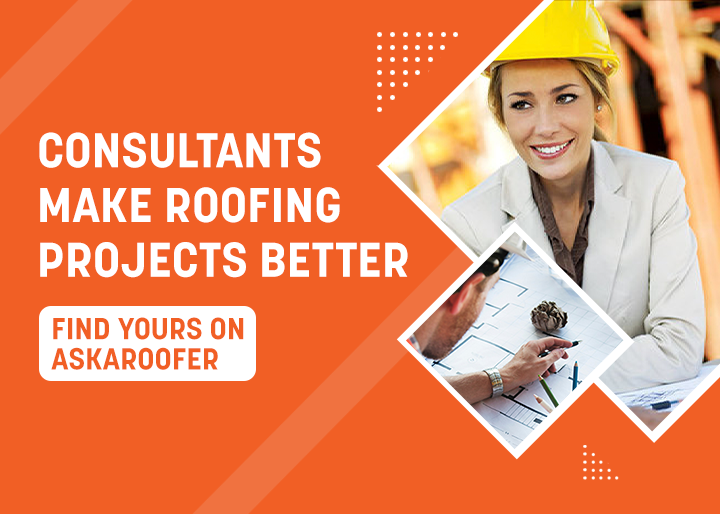
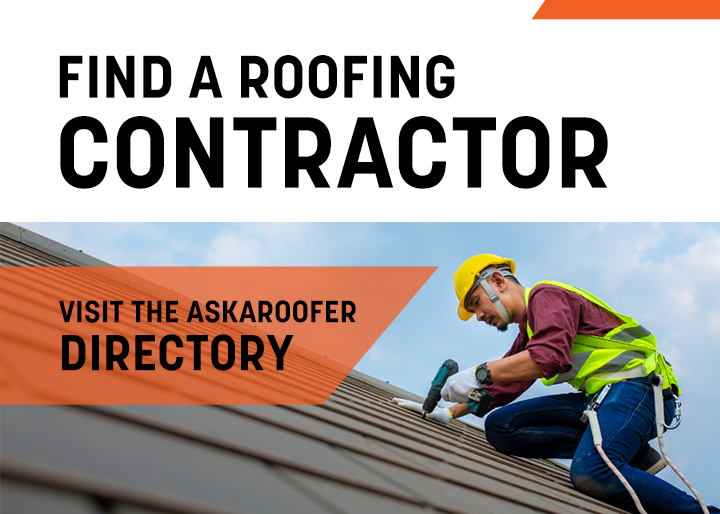
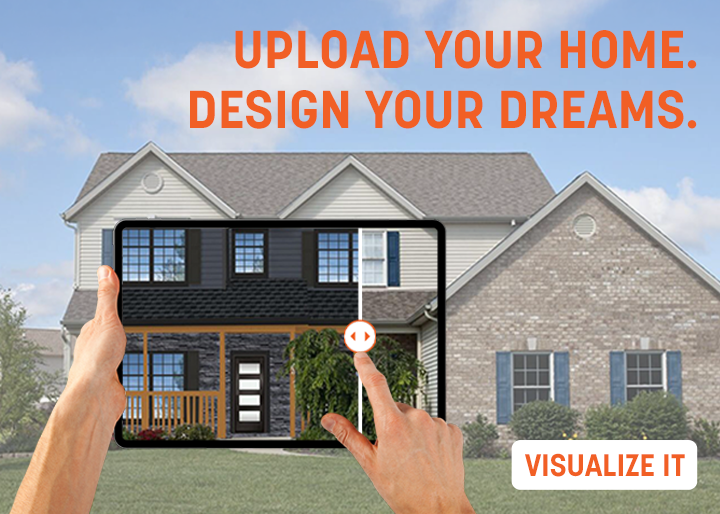
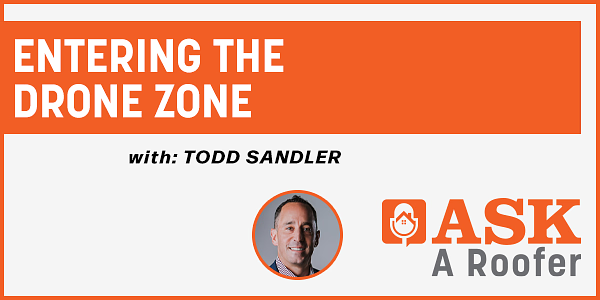
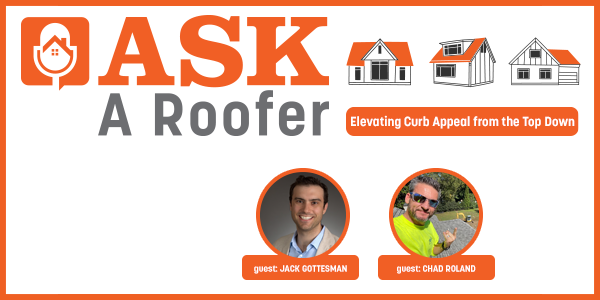
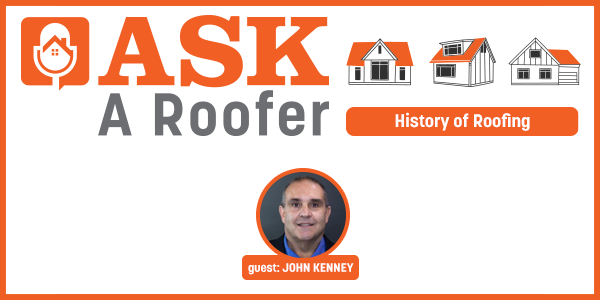



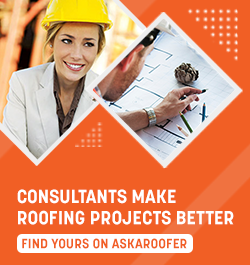


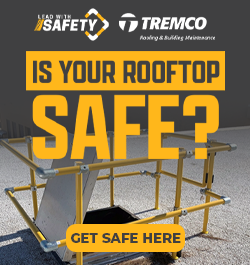
Comments
Leave a Reply
Have an account? Login to leave a comment!
Sign In